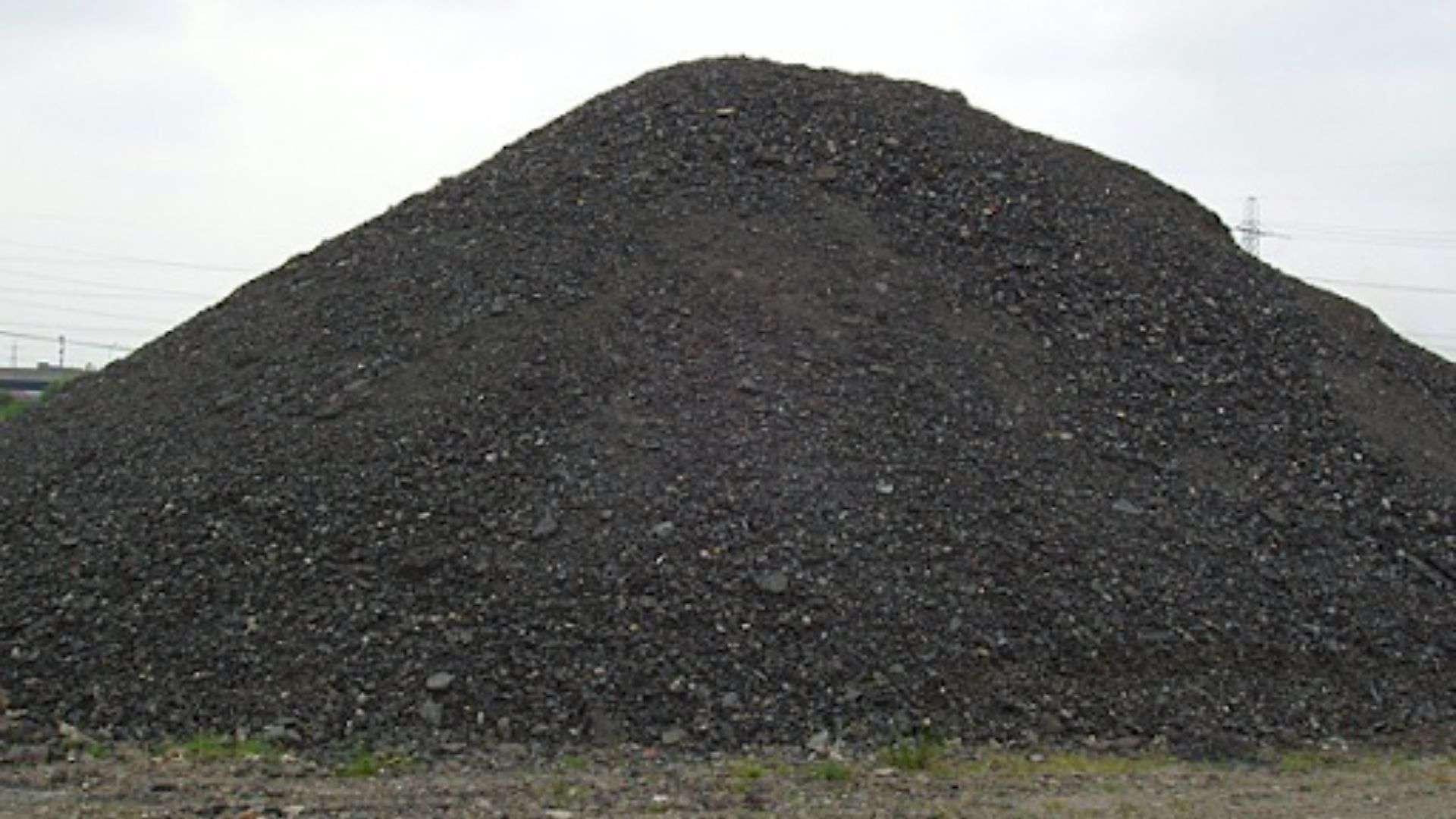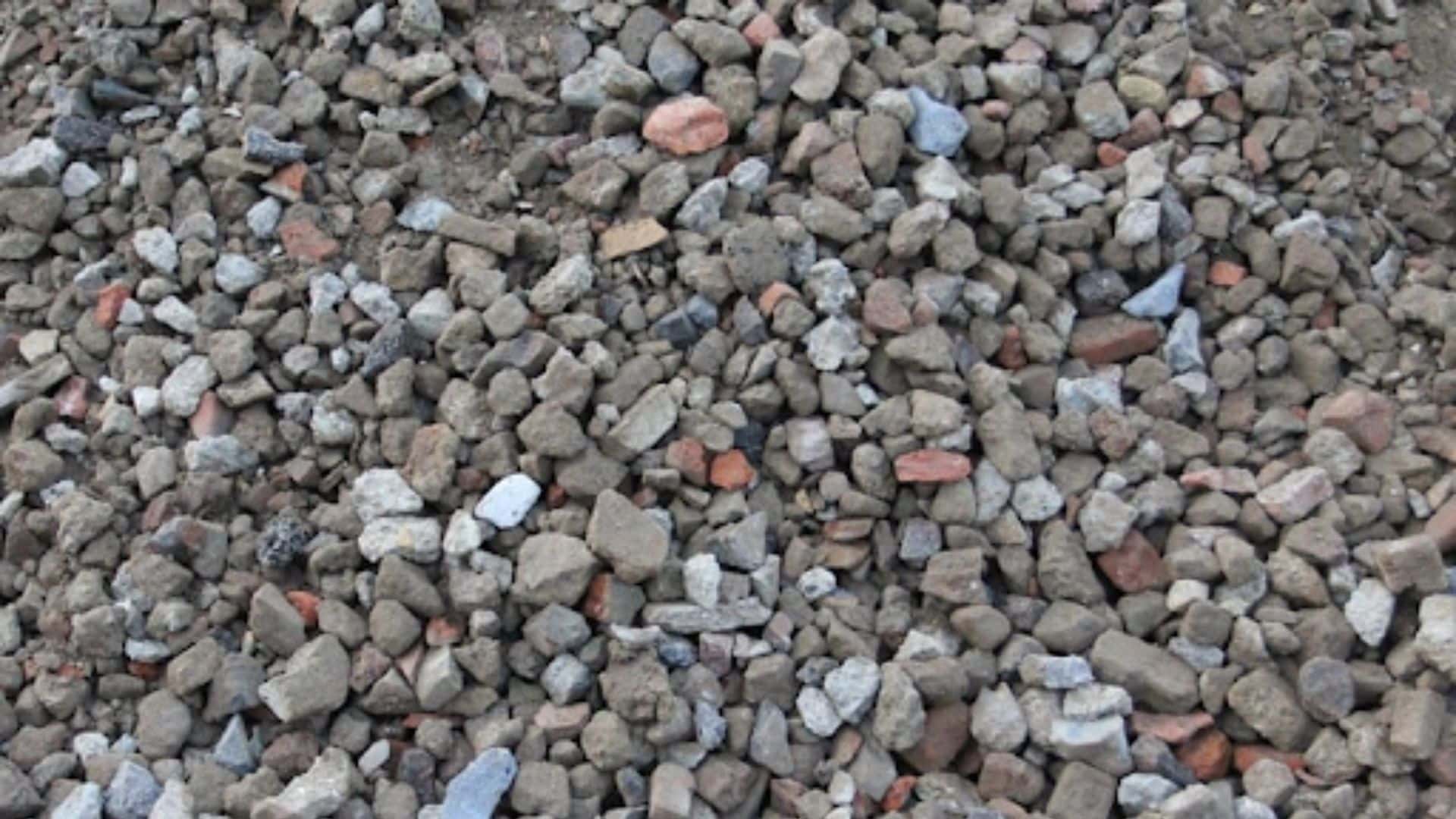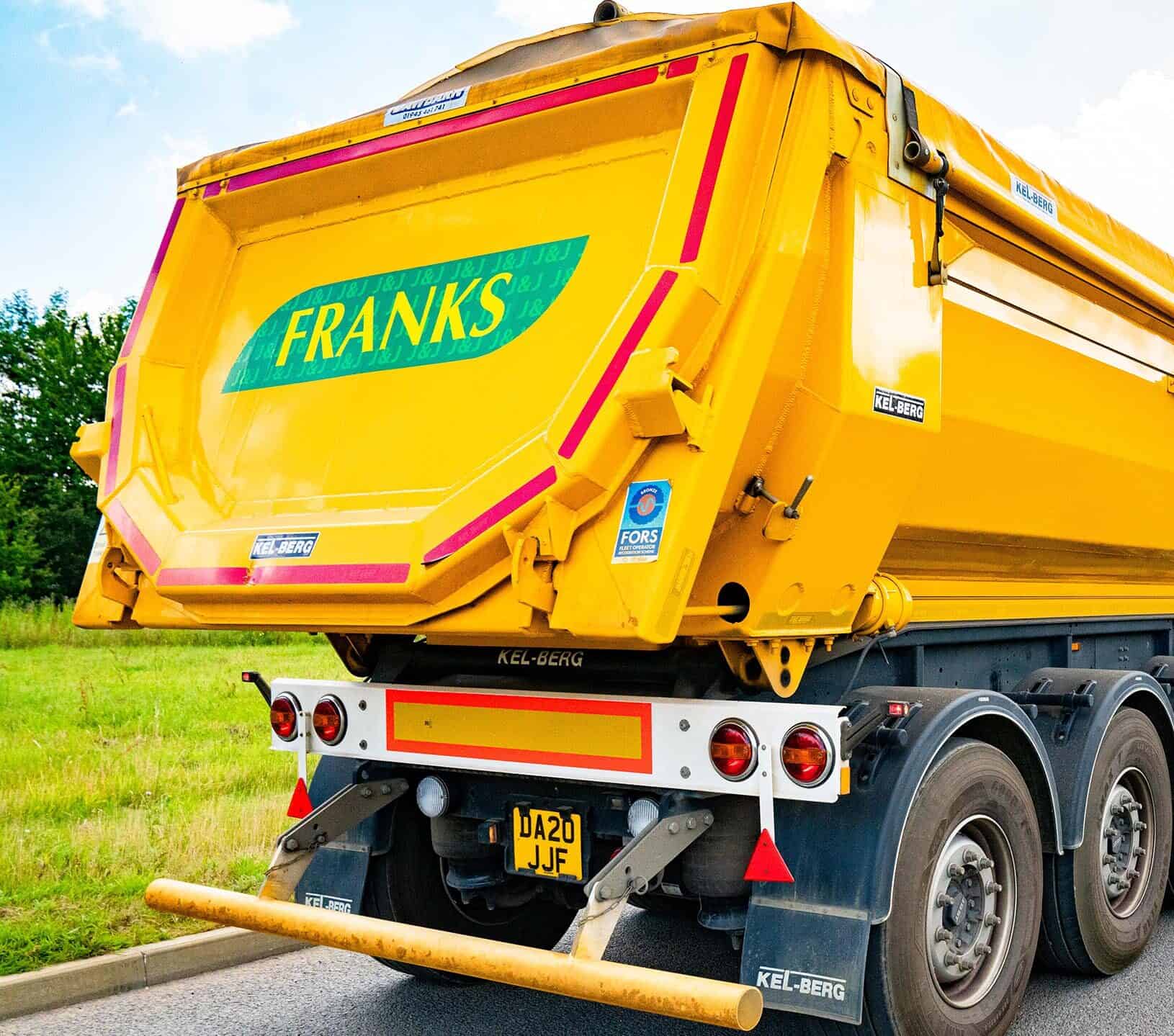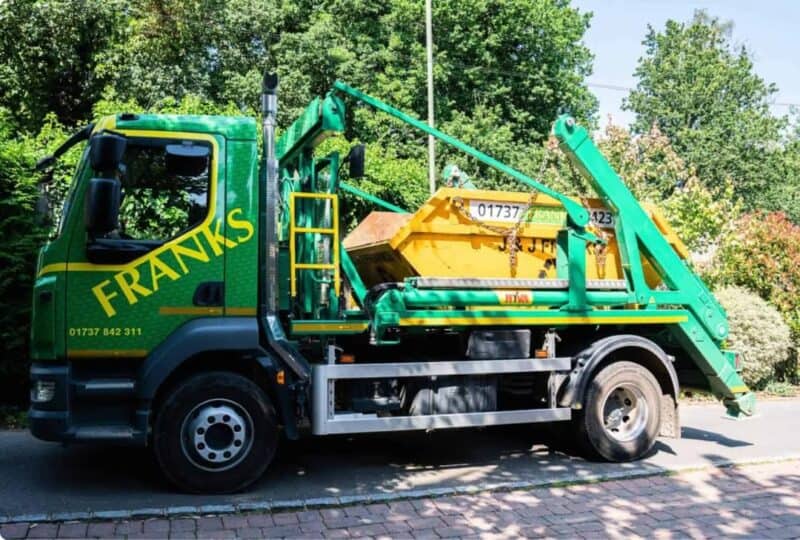In this blog, we’ll explore what recycled aggregates are, how they’re produced, their benefits compared to natural aggregates, and how J&J Franks is leading the way in recycled aggregates.
What are Recycled Aggregates?
Recycled aggregates are materials derived from construction and demolition waste that have been processed and repurposed for use in new construction projects. These materials include crushed concrete, crushed brick, recycled asphalt, and more. By diverting waste from landfills and reusing it in construction, recycled aggregates contribute to resource conservation and waste reduction efforts.
Production Process
The production process of recycled aggregates begins with waste collection of construction and demolition waste from building sites, and road reconstruction projects. This waste is then sorted and processed to remove contaminants such as wood, metal, and plastic. The remaining materials are crushed, screened, and graded to produce recycled aggregates of various sizes and specifications.
Natural Aggregate vs Recycled Aggregate
Properties and Characteristics
While natural aggregates are mined from quarries, recycled aggregates are sourced from waste materials generated during construction activities. Despite this difference, recycled aggregates exhibit properties and characteristics similar to those of natural aggregates. They possess strength, durability and stability, making them suitable for various construction applications.
Benefits in Construction Projects
The use of recycled aggregates offers several benefits in construction projects. Firstly, it reduces the demand for natural resources, minimising the environmental impact of quarrying and mining activities. Additionally, recycled aggregates help to lower construction costs by providing a cost-effective alternative to natural materials. Furthermore, their use promotes waste diversion by reusing materials that would otherwise end up in landfills.
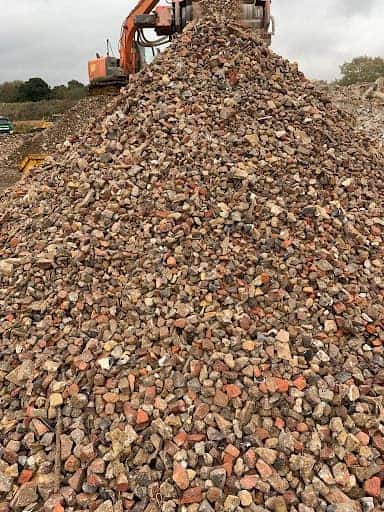
Applications in Construction Projects
Recycled aggregates find applications in a wide range of construction projects, including:
Road Construction
Recycled aggregates are commonly used in road construction for base and sub-base layers. Their use helps to improve the structural integrity of roads while reducing the need for natural materials.
Concrete Production
In concrete production, recycled aggregates can replace natural aggregates in non-structural applications such as pavements, driveways, and patios. This reduces the consumption of natural resources and lowers the carbon footprint of concrete production.
Landscaping and Drainage
Recycled aggregates are also used in landscaping projects, such as the construction of retaining walls, pathways, and drainage systems. Their versatility and affordability make them a preferred choice for landscaping contractors seeking sustainable solutions.
Environmental and Economic Benefits
Energy Savings
The use of recycled aggregates results in significant energy savings compared to the production of natural aggregates. By avoiding the extraction, processing, and transportation of natural materials, recycled aggregates help to conserve energy and reduce greenhouse gas emissions.
Waste Diversion
One of the primary environmental benefits of recycled aggregates is waste diversion. By diverting construction and demolition waste from landfills, recycled aggregates contribute to waste reduction efforts and promote a circular economy.
Cost Savings
From an economic perspective, the use of recycled aggregates offers substantial cost savings for construction projects. Recycled materials are often less expensive than natural materials, helping builders to reduce project costs without compromising quality.
Transportation Savings
Locally sourcing recycled aggregates reduces transportation distances, resulting in additional cost savings and environmental benefits. By sourcing materials from nearby recycling facilities, builders can minimise fuel consumption and reduce carbon emissions associated with transportation. J&J Franks supports local areas with recycled aggregates across Surrey & East Grinstead.
J&J Franks: Leading the Way in Sustainable Construction Practices
At J&J Franks, we are committed to sustainable construction practices and environmental stewardship. As a leading provider of waste management solutions, we offer a wide range of services, including skip hire, waste removal, and recycled aggregate supply. With decades of experience in the industry, we have established ourselves as trusted partners for builders seeking sustainable solutions for their projects.
From our state-of-the-art recycling facilities to our fleet of modern vehicles, we prioritise efficiency and reliability. By partnering with J&J Franks, builders can access high-quality recycled aggregates, ensuring that their projects meet the highest standards of sustainability and quality.
In conclusion, the use of recycled aggregates is a sustainable and cost-effective solution for construction projects. By incorporating recycled materials into their projects, builders can reduce their environmental impact, lower project costs, and contribute to a more sustainable built environment. At J&J Franks, we are proud to offer recycled aggregates as part of our comprehensive waste management solutions, helping builders achieve their sustainability goals while delivering exceptional results.
Contact us today to discuss any specific requirements or specifications.
